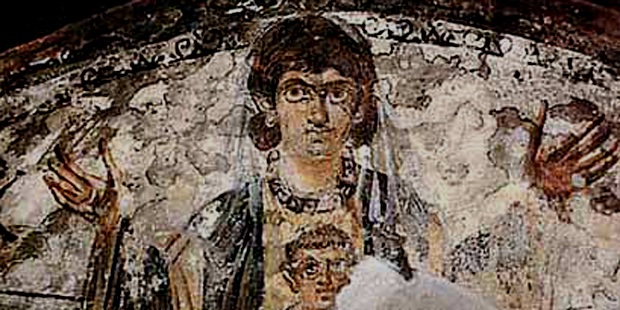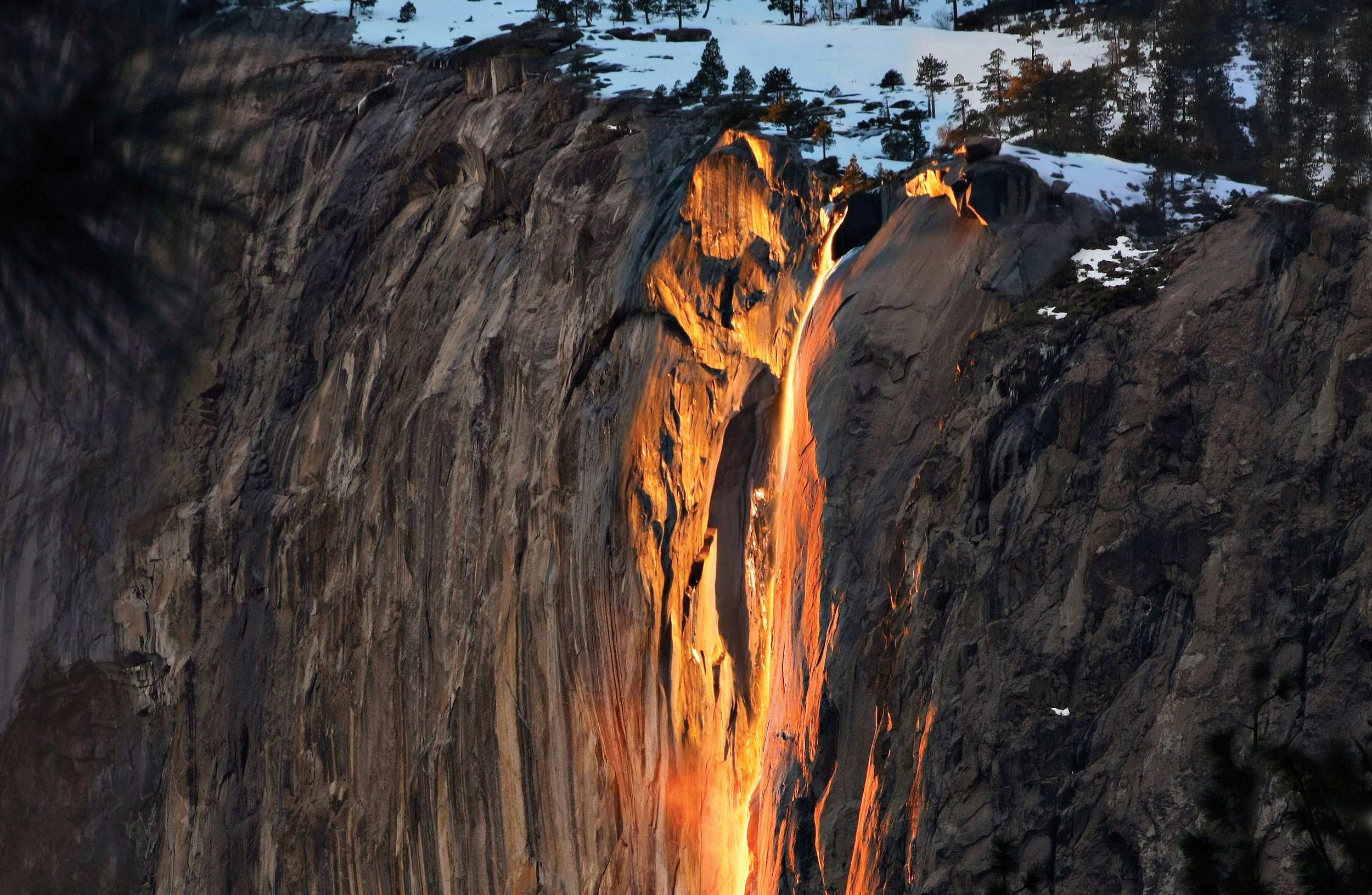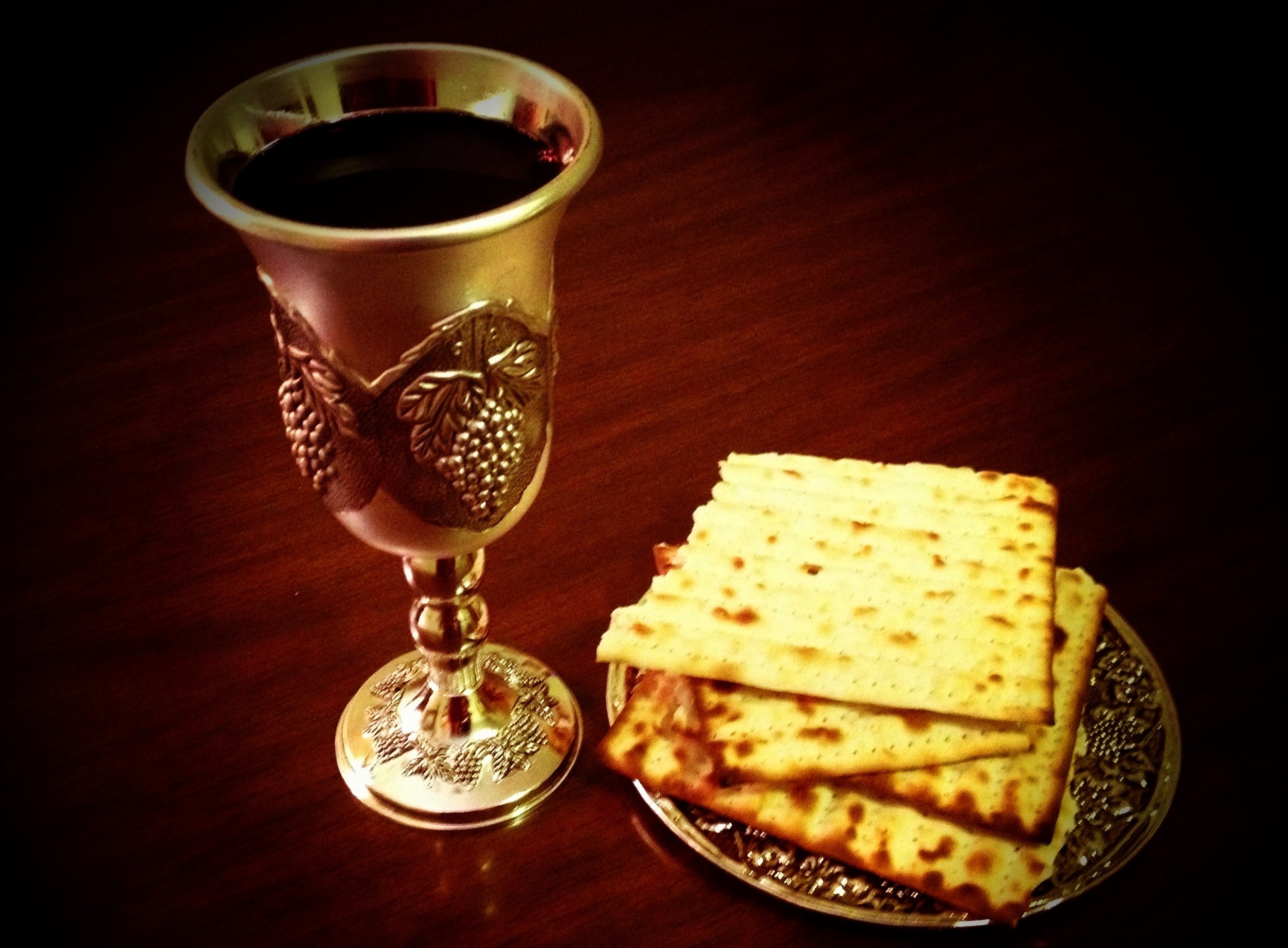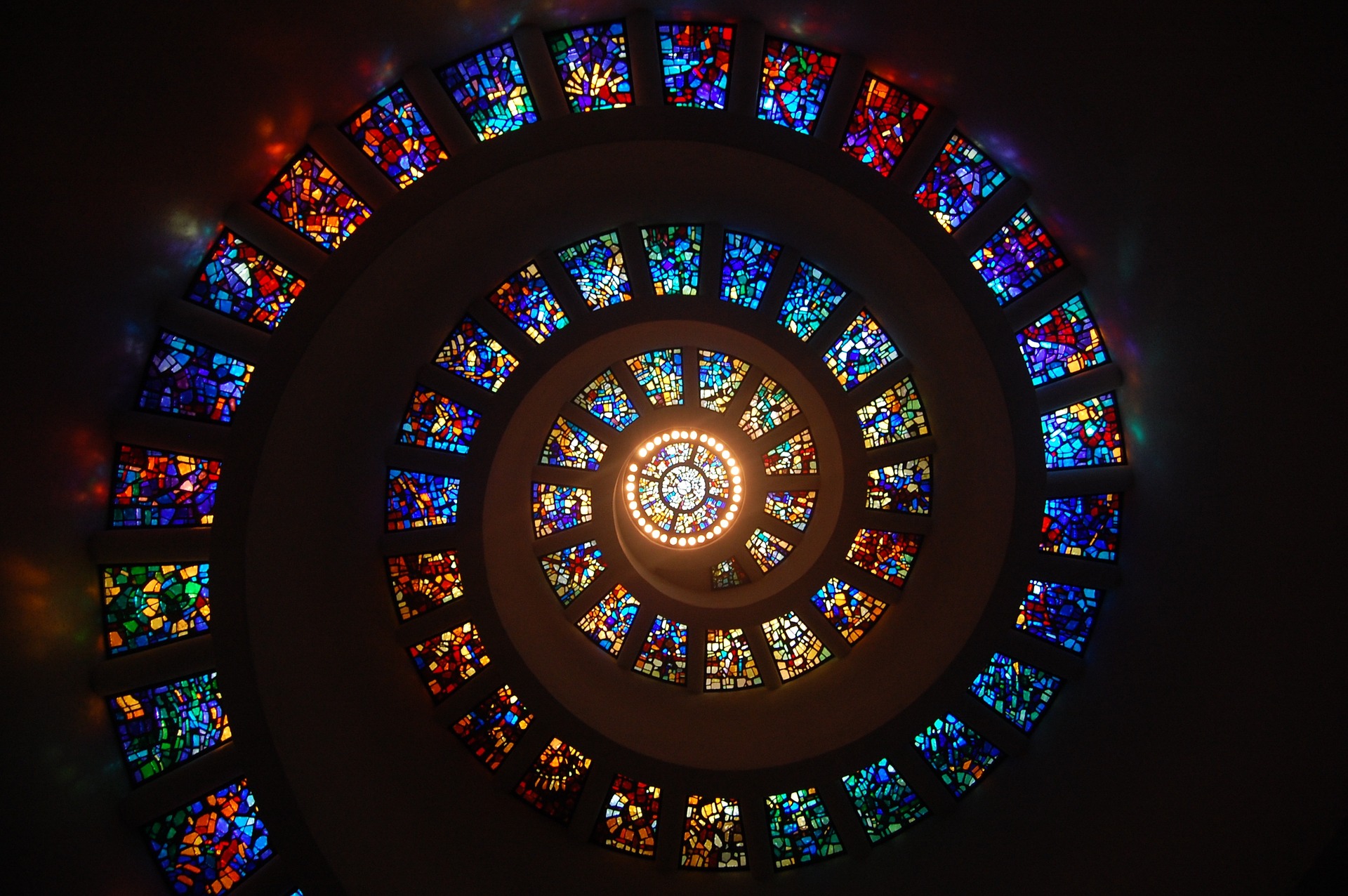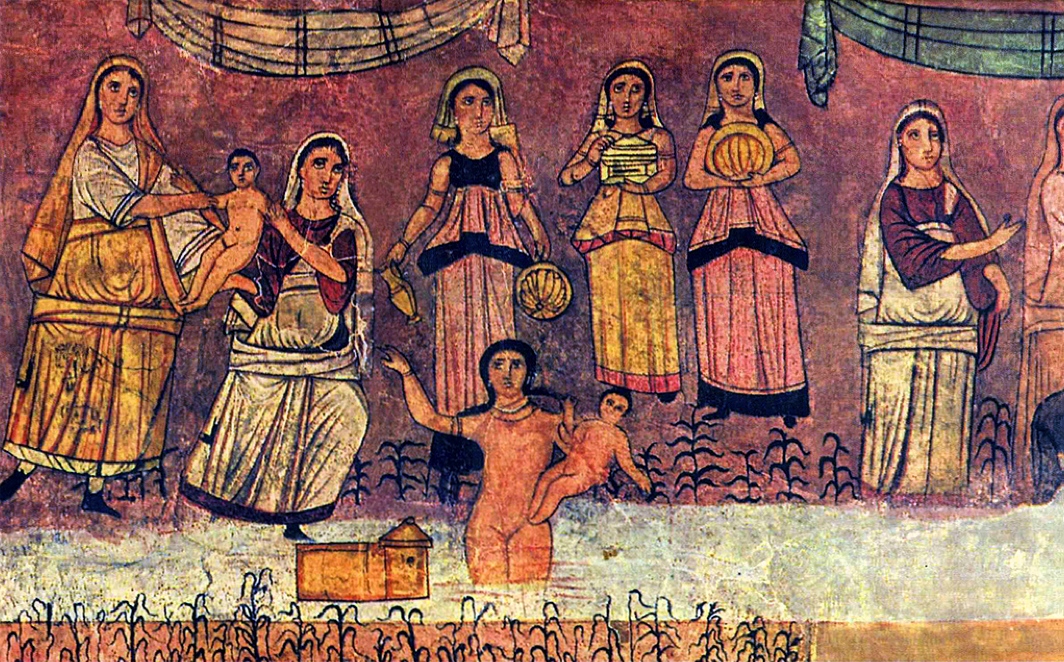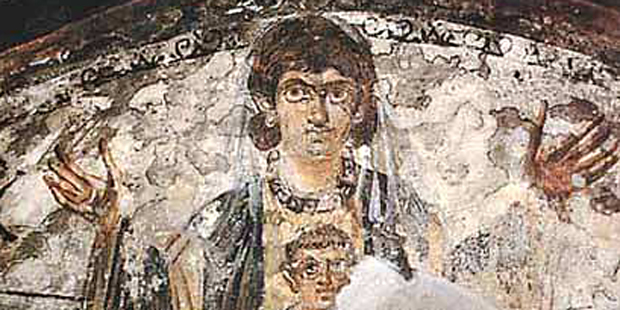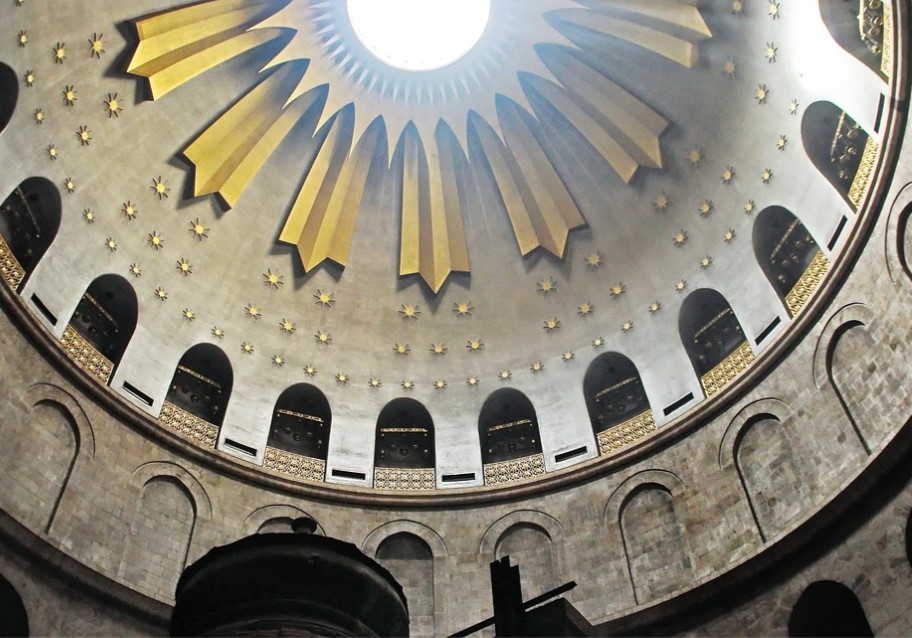The Decisive Miracle: Jesus of Nazareth
Photograph: This is a fresco of Jesus as an infant along with Mary his mother. It dates back to the 4th century AD, and is located in the Roman catacombs where the Roman Christians continued to meet after the years of persecution. Photo credit: Unknown | Public Domain, Wikimedia Commons.
Introduction
C.S. Lewis called Jesus of Nazareth the decisive miracle because he was God becoming one with humanity and the material world. Read why below.
Conversation Stations
What Story Do You Live In? (and associated message)
Is Religion Just a Cultural Thing? (and instructions)
Who Do You Think Wrote This? (and instructions)
What Can We Do About Evil? (and instructions and conversation tree)
What Can We Do About Evil? (brochure version)
Find Your Heart's Desire? (and instructions and theology of desire)
Messages and Essays on Jesus of Nazareth as the Decisive Miracle
Weird Coincidences, Supernatural Events, Funny Feelings - Is That You God?
A message about experiencing unusual things, and how to interpret them as a good God directing our attention to Jesus.
The Trinity: Can Other Gods Be Personally Known?
A presentation that observes that Jewish monotheism allowed for at least a binitarian God who was both transcendent and immanent at the same time. See also God’s Goodness to explore how God can be wholly good despite human evil.
The Resurrection of Jesus: Its Historicity and Meaning
A collection of resources on the historicity and meaning of Jesus’ bodily resurrection.
Is There Hard Historical Evidence That Jesus Was Fairly Amazing?
Text of a message on Isaiah 53, long considered to be a prophetic anticipation of hope in a servant-king figure. Jesus claimed to fill to the full this passage, and the New Testament is replete with quotations of it.
Proof: Four Types of Knowledge
This section on Proof spotlights Christian faith’s engagement with forms of knowing. Science by itself is supportive but indeterminate as a way of knowing the truth of Christian faith. Philosophy points to some kind of God, or first cause, without being able to go further. History is the primary mode of knowing about Jesus, much like a jury reasoning about the past to determine the proper narrative. Human Personhood highlights our experience of personhood, which corroborates the conclusions of historical investigation about Christian faith and a Christian understanding of human personhood.
Evil: Jesus Heals the Evil in Human Nature
The “problem of evil” is sometimes thought to be a dilemma for Christians. How can God be fundamentally and thoroughly good when there is evil? However, the category “evil” requires the category “good,” which requires a morally consistent God who anchors those categories and is the source of whatever goodness we have and experience. So when we see people do evil things, we do not need merely a theoretical explanation, but a concrete remedy for the corruption of sin within human nature. The real question, then, is whether there is a God good and loving enough to heal human beings of our evil, and undo the damage we cause to ourselves and others. That is where Jesus comes in. This section on Evil introduces the topic and compares the Christian story to other stories or belief systems. Christian teaching explains the Evil Within Us as the source of the Evil Between Us, Evil in Human Laws, and Evil in Institutions. So if you are on a spiritual search, consider browsing through our materials in that sequence.
God is a fellowship of Father, Son, and Holy Spirit, so God is a communion of love. From eternity, God is fundamentally love, relational, personal, communal, friendship, family. God took on secondary attributes when God created the universe: God is creator, holy (as in “separate and distinct” from creation), sovereign (as in “ruler” of creation), etc. God took on tertiary attributes when humans corrupted human nature: just, wrathful, merciful, redeeming, purifying, etc. But God’s secondary and tertiary attributes must be understood as activities of His love, not as fundamental attributes equal and opposite to love. Also, since God made human beings “in the image of God,” we are called to receive and share the divine love, by participation. Since we do not generate love, we must depend on God, and grow in love in relationship with the Triune God. Basics and Introduction focuses on the biblical presentation of Father, Son, and Holy Spirit; the Council of Nicaea which articulated the Trinity formally; and the implications. God’s Goodness in Creation spotlights creation and humanity, especially how God made humans as human beings and human becomings. God’s Goodness in Israel tackles big questions about God taking human life, protecting Israel, and even creating an Israel in the first place. God’s Goodness in Jesus explains God revealing Himself fully in Jesus, and addresses Protestant notions of limited atonement and double predestination as incompatible with God’s Triune character of love. God’s Goodness and the Holy Spirit explores the divine person of the Spirit and the gifts of the Spirit. God’s Goodness and Human Destiny explains how desire, development, and destiny are part of the outworking of human becoming and God’s goodness.
Other Resources on Jesus of Nazareth as the Decisive Miracle
C.S. Lewis, Miracles. Amazon page, 1947
Ora Et Labora, Resources on the Transfiguration. Ora Et Labora | Blogspot, Aug 19, 2008. For sermons, reflections, and poetry on Jesus’ transfiguration, and what this indicates about God’s heart and vision and love for all creation.
Joe Rawls, Anthony Bloom on the Transfiguration. The Byzantine Anglo-Catholic, Aug 9, 2009. Anthony Bloom is an Orthodox priest in England. Bloom said in a sermon,
“Here, in a shrouded manner, is revealed to us all of the greatness, all the significance, not only of man, but of the material world itself, of its indescribable potential, not only earthly and transitory, but also eternal and Divine...
...And if we attentively and seriously accept what is revealed to us here, we must change as profoundly as we can our attitude toward everything visible, toward everything tangible; not only toward humanity, not only toward man, but toward his very flesh, and not only toward human flesh, but toward everything around him that is physically perceptible, tangible, and visible...Everything is called to become the place of indwelling of the Lord's grace; everything is called to be at some time, at the end of time, drawn into that glory and to shine forth with that glory.
And it is granted unto us people to know that; it is granted unto us people not only to know that, but to be co-workers with God in the illuminating of that Creation which the Lord created...We perform the blessing of the fruits, the blessing of the waters, the blessing of the grains, the bread, we perform the blessing of bread and wine, changing them into the Body and Blood of the Lord; the source of the miracles of Transfiguration and Theophany is within the confines of the Church. Through human faith, the matter of this world is separated out, matter which through man's lack of faith, through human perfidy, had been handed over to corruption, death and destruction, is set apart by the miracle of Transfiguration and Theophany. Through our faith, it is separated from this corruption and death, and is given over to God Himself, is accepted by God, and in God fundamentally becomes a new creation...”
Randall Collins, Jesus in Interaction: The Micro-Sociology of Charisma. Randall Collins blog, Apr 12, 2014.
Rachel Marie Stone, What One of the Anti-Vaccination Movement's Least Favorite Doctors Discovered About Jesus. Washington Post, Apr 13, 2015.
Rod Dreher, Resistance to Grace. The American Conservative, Dec 2, 2015.
Malcolm Guite, A Sonnet on the Transfiguration. Malcolm Guite, Feb 14, 2021.
For that one moment, ‘in and out of time’,
On that one mountain where all moments meet,
The daily veil that covers the sublime
In darkling glass fell dazzled at his feet.
There were no angels full of eyes and wings
Just living glory full of truth and grace.
The Love that dances at the heart of things
Shone out upon us from a human face
And to that light the light in us leaped up,
We felt it quicken somewhere deep within,
A sudden blaze of long-extinguished hope
Trembled and tingled through the tender skin.
Nor can this blackened sky, this darkened scar
Eclipse that glimpse of how things really are.
Jonathan Pageau, Transfiguration: The End of Symbolism - with Aidan Hart. Jonathan Pageau, Aug 3, 2023. A 53 minute video discussion. “This is a discussion from the Princeton Scala Foundation conference that took place in April 2023 with the title, “The Transfiguration: Glory and Grace in the World”. I sat down with Margarita Mooney Clayton and iconographer and author Aidan Hart to discuss the Transfiguration of Christ, how God's glory fills the world, and that the ultimate goal of the spiritual life is encountering God face to face.”
David Brooks, The Shock of Faith: It’s Nothing Like I Thought It Would Be. New York Times, Dec 19, 2024. On epiphanies that led to the pursuit of God, on desire and longing, and the view of humans as co-creators with God. “I experienced an acceleration of those moments. This time they were not mere spooky experiences, but illuminations — events that tell us about the meaning of life and change the way we see the world…. When religion is seen as belief, then the believer lives on a continuum between belief and doubt. But when religion is seen as a longing, then the believer lives on the continuum between intensity and apathy… I’ve heard Christians say that our job is to take our hands off the wheel and let God drive. Or as John Calvin put it, “The only haven of safety is to have no other will, no other wisdom, than to follow the Lord wherever he leads.” In the face of that, I find the Jewish concept of “co-creation” is stubbornly baked into my mind. It is our human will, energy and creativity, working within God’s, that matter.”
The Supernatural: Topics:
This section on the Supernatural is organized as follows: The Natural highlights how creation itself is miraculous, since there is something rather than nothing; and creation points in its own way to God. General Accounts highlights how people who are not Christians have observed supernatural phenomena. Christian Accounts spotlights specifically Christian experiences and interpretations of the supernatural. Making Sense explores different ways of understanding supernatural events. Biblical Israel examines how the origins, literature, and early history of Israel point to a supernatural origin. The Decisive Miracle considers Jesus to be the supreme miracle of a God who reveals God’s own self.
